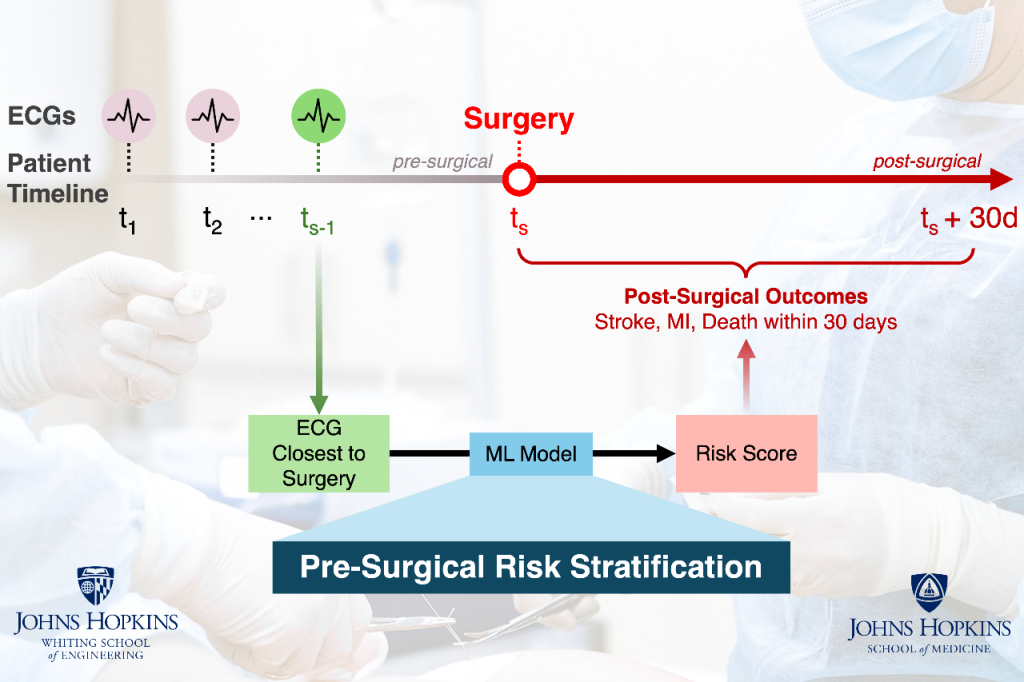Pre-Surgical Risk Stratification using Deep Learning on 12-lead ECGs for Non-Cardiac Populations
Program:
Biomedical Engineering
Project Description:
Surgical decision-making is critically dependent on accurate assessments of risk, but the effectiveness of electrocardiography (ECG) in evaluating surgical risks remains unclear, despite its common use in clinical settings.
Using 12-lead diagnostic ECG taken prior to major noncardiac surgery in 28,661 adult patients enrolled in the MIMIC-IV dataset, we trained a series of convolutional neural network (CNN)-based models to predict major post-surgical adverse outcomes including acute myocardial infarction (MI), in-hospital mortality (IHM), and a composite of MI, 30-day mortality, and stroke (composite). These waveform-only models achieved comparable discrimination to the Revised Cardiac Risk Index (RCRI), a benchmark pre-surgical risk stratification tool used to evaluate non-cardiac surgical candidates. We then integrated ECG waveforms with a small number of clinical variables (age, sex, and RCRI components) to create a fusion model. To gain insight on the explainability of the models, we generate counterfactual ECGs using generative adversarial networks.
Team Members
-
[foreach 357]
-
[if 397 not_equal=””][/if 397][395]
[/foreach 357]
Project Mentors, Sponsors, and Partners
Course Faculty
-
[foreach 429]
-
[if 433 not_equal=””][/if 433][431]
[/foreach 429]
